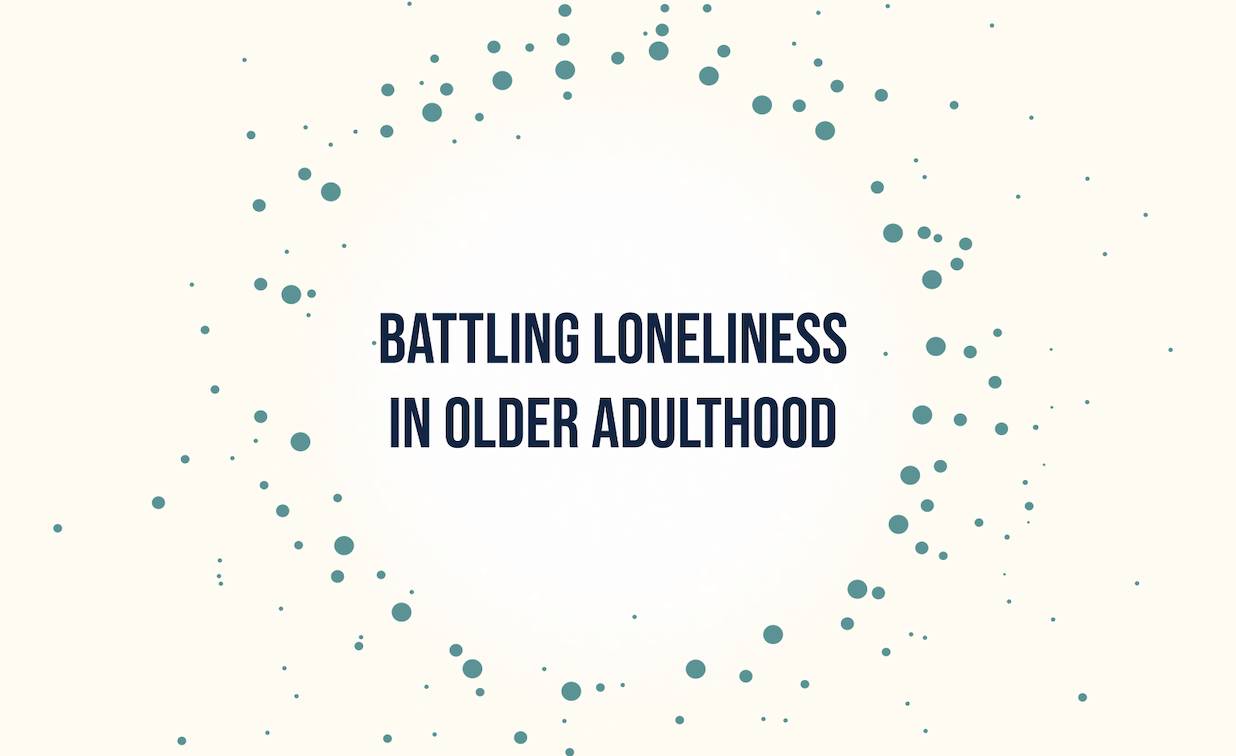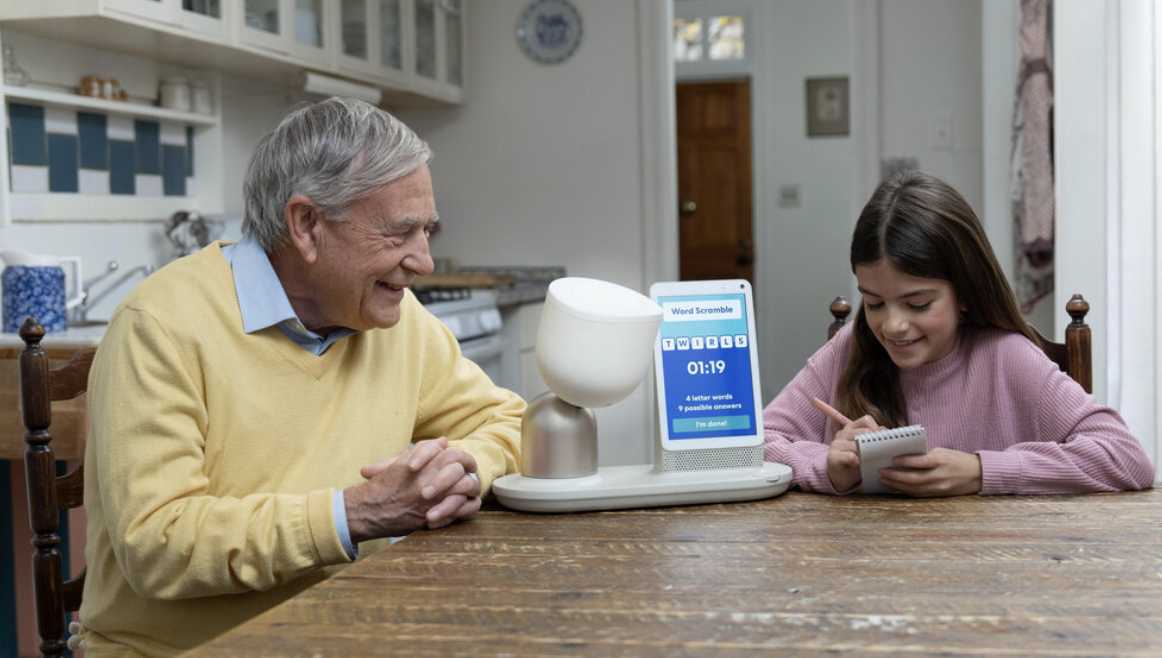Senior Companion Care: Benefits, Alternatives & More
December 1, 2019 by Intuition Robotics Team
Today, nearly 29% of older adults live alone, without their partners or loved ones around. As if that wasn’t a big enough challenge, families nowadays have become smaller and are drifting farther apart, moving cities, states and even oceans away. As a result, older adults living away from their loved ones are quickly becoming one of the most isolated - and coincidingly, lonely - demographics among our society.
Though more attention is finally being paid to the extent of this loneliness, we’re now at a critical turning point - and we’re beginning to understand just how immense the consequences of loneliness can be on older adults’ memories, mental and physical health, and even life expectancy.
One study found that loneliness has the equivalent health impact of smoking 15 cigarettes per day, comparable to other leading mortality risk factors like alcohol or obesity. AARP also determined that health issues associated with social isolation in older adults leads to an estimated $6.7 billion in additional Medicare spending.
Yet despite the momentous, alarming evidence on the consequences of loneliness, it’s still widely disregarded and stigmatized. Think about it - no one wants to admit that they’re lonely, or confront the staggering repercussions.
We firmly believe otherwise - that it’s now more critical than ever to spread awareness, and take immediate, concerted action to prevent, combat, and alleviate loneliness among older adults across the globe.
Despite how arduous devising a solution for this large-scale issue might seem, there are a number of simple, feasible ways to ameliorate loneliness. One of the most advantageous approaches is to incorporate meaningful social activities, such as companion care or social engagement groups with other like-minded individuals.
Let’s take a closer look at senior companion care specifically, and explore the major benefits that it can provide, why it’s so crucial, and how to select and incorporate the right options and alternatives.
The loneliness epidemic
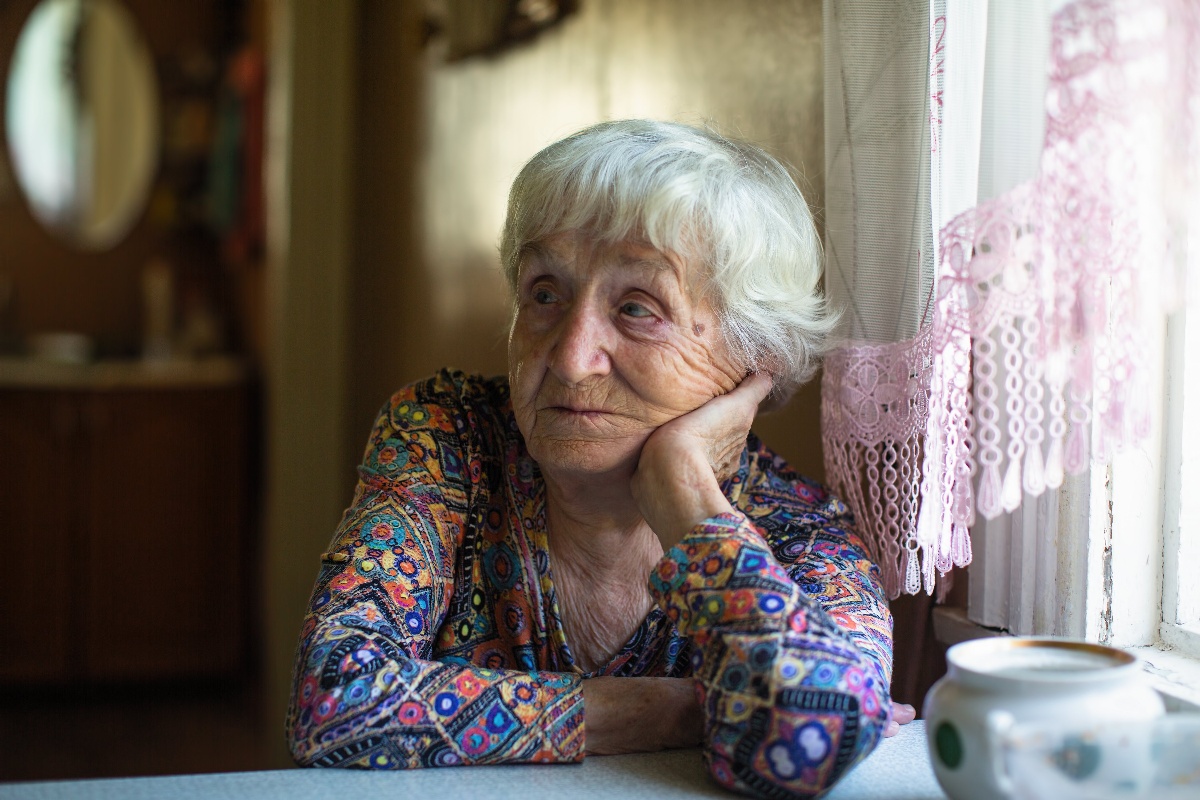
In one recent study conducted by the University of California at San Francisco, 43% of older adult participants admitted to feelings of loneliness. In another study by the University of Michigan, 34% of participants felt a lack of companionship, while 27% felt socially isolated - and that’s just those who were willing to admit these sentiments.
Because loneliness is still highly stigmatized, many people suffering from symptoms prefer to keep this to themselves, rather than openly share how they feel with others or work on a strategy to improve their situation.
Though loneliness can of course happen to anyone, because of their lifestyle, older adults unfortunately tend to be most susceptible - especially those living alone, isolated and disconnected from some of the prominent social engagement that their younger counterparts partake in on a regular basis (such as working, commuting or seeing loved ones daily).
And the impacts of loneliness throughout the aging process are pretty alarming - it can lead to a 26% increased mortality risk, as well as higher risks for a variety of physical and mental conditions, like heart disease, a weakened immune system, anxiety, depression, cognitive decline, and Alzheimer’s disease.
While finding a realistic means to reverse loneliness and its effects among older adults may seem rather daunting and improbable, there’s growing evidence that suggests quite the contrary.
Fortunately, transforming the current paradigm isn’t as complex as it seems - we can dramatically prevent and curtail the effects of loneliness by creating and maintaining strong, meaningful social ties.
Senior companion care: Why it’s so imperative
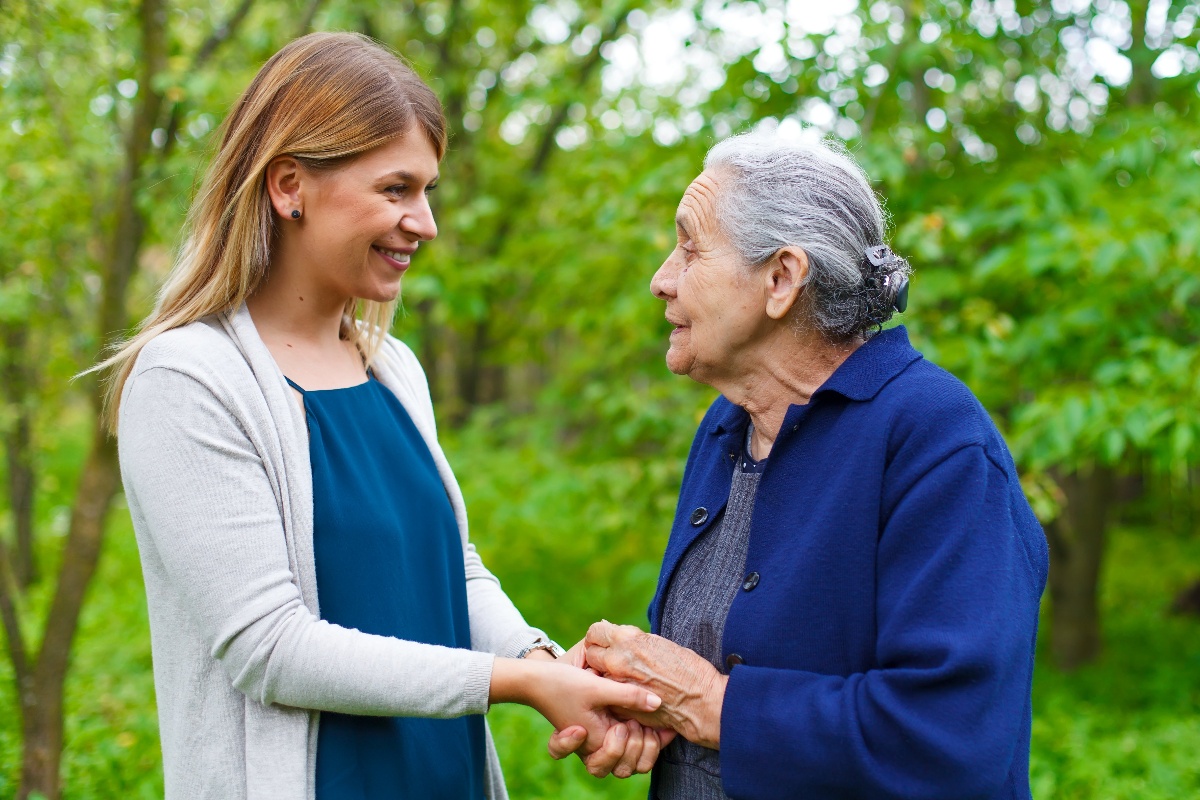
Perhaps not surprisingly, AARP research concluded that social and community engagement are some of the key catalysts in combating loneliness.
In fact, Timothy B. Smith, a professor at Brigham Young University, claims that older adults that maintain strong social ties even live an average of 4 years longer than others, and the impact of strong social ties “is as powerful as quitting smoking, losing weight or improving fitness,” according to research director of National Seniors Australia.
Clearly it’s imperative that older adults remain as socially active, connected, and involved as possible throughout their advancing years - for this, senior companion care can be a fantastic, highly feasible option.
What exactly is senior companion care, and what does it entail? Essentially, it’s the process by which younger social companions (typically volunteers) make a concerted effort to regularly spend time with older adults in their homes, ideally over a long period of time.
This is primarily to provide emotional support and comfort, as well as to build and maintain these strong, vital social ties. The frequency and duration of these companions’ visits can vary, but typically, even just an hour per week can make a huge difference.
Through this type of deliberate, continuous social interaction, older adults can form and maintain powerful social connections to prevent, combat, and alleviate loneliness - as well as its negative health repercussions.
Finding the right social engagement options
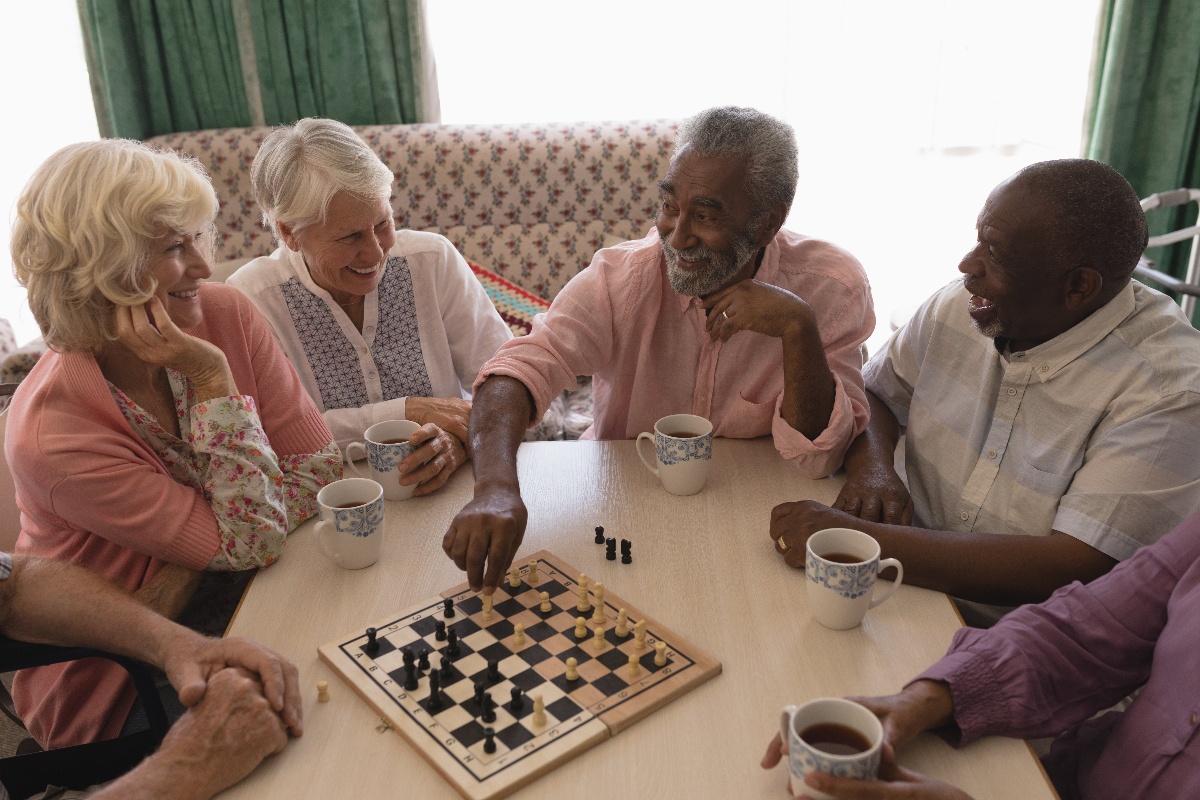
Although senior companion care is a wonderful component to keeping older adults socially active and engaged, it’s certainly not the only option. There are a number of great senior care and/or community involvement opportunities available that can help prevent and alleviate loneliness, fit for virtually any schedule and budget.
Some of the most prevalent alternatives include the following.
- Phone or video chat buddies. Though face-to-face interaction is ideal, phone or video chatting can be the next best thing. There are several large-scale programs available, such as CareMore’s Togetherness program, which connects older adults with phone chat companions, creating strong, meaningful bonds and reducing loneliness.
- Community groups. An amazing method to eradicate loneliness - and facilitate active, healthy aging - is to get involved in local community organizations. This can include volunteer groups, book or gaming meetups, shared hobbies, and otherwise. Anything that facilitates connection with like-minded locals is ideal for forming strong social ties.
- Senior centers. Most cities throughout the US should have a senior center in relatively close proximity. These centers are not only great for facilitating meaningful connections and friendships, they also tend to include other healthy incentives such as group exercise, nutrition or cooking classes, and cognitively stimulating activities.
- Scheduled time with loved ones. Some of the strongest potential bonds possible are to the connections we already have. Whether we’re physically close to loved ones or thousands of miles apart, designating time each week to spend with family and friends, either in-person or virtually, is one of the best ways to stay socially connected.
- Online communities. Though it might not be as personal or comforting as an in-person interaction, online communities can be a terrific way to find and connect with like-minded peers. Older adults can find new friends that they might not have met otherwise via social media, and maintain these relationships via phone, email, or video contact.
Maintaining strong social ties in the future
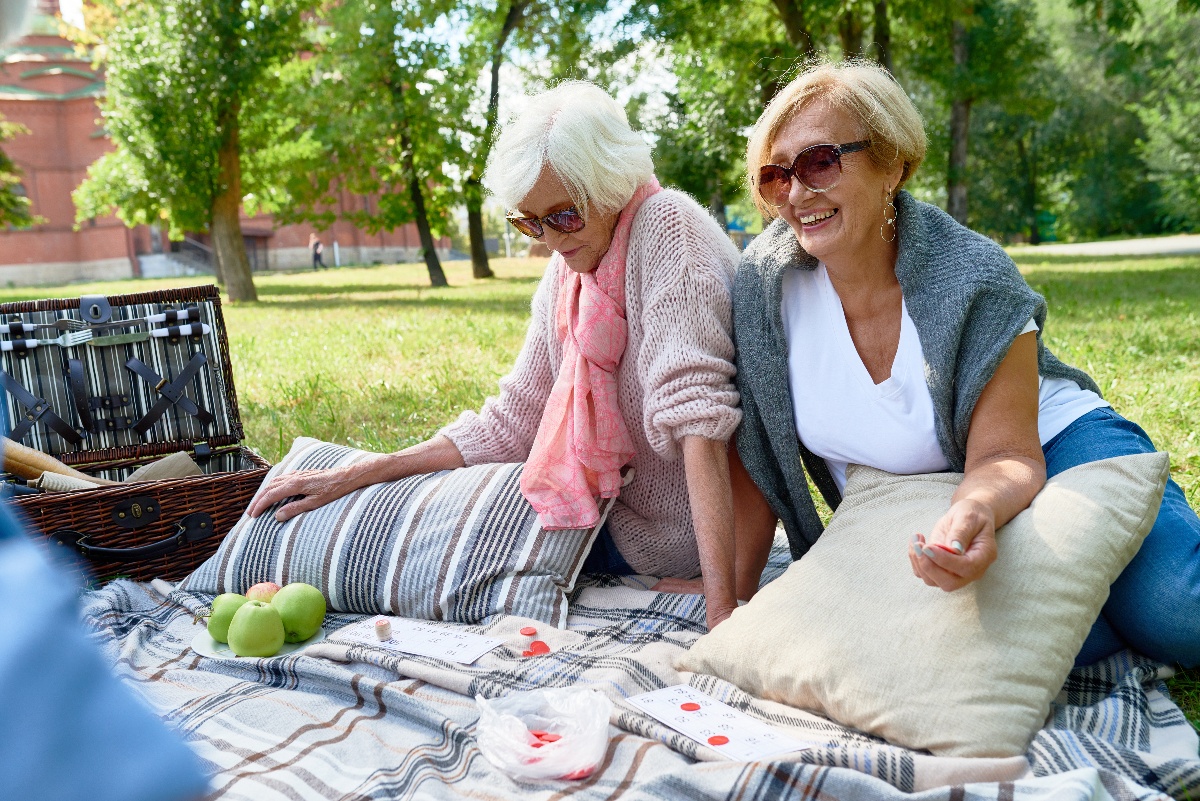
One of the first steps in the right direction towards tackling and alleviating the loneliness epidemic is mere awareness - understanding the scale and impact of this growing issue, and what each of us can do about it.
By staying as socially involved, engaged and empowered as possible through activities like companion care, community groups, and connecting with loved ones, either online or in person, older adults will not only continue to develop and enhance meaningful relationships - they’ll also have the ability to drastically improve their mental and physical health.
As awareness and research around this topic continue to advance, one thing’s for sure - it’s time to usher in a new era of happier, healthier aging for all. The more we continue to educate older adults, as well as their loved ones and caregivers, on the importance of creating and maintaining strong social ties, the more we’ll be able to keep them socially active, affable, and flourishing throughout this unique, meaningful chapter in life.
Recent posts
.png)
The benefits of an AI-driven social robot for area agencies on aging
by Intuition Robotics Team

